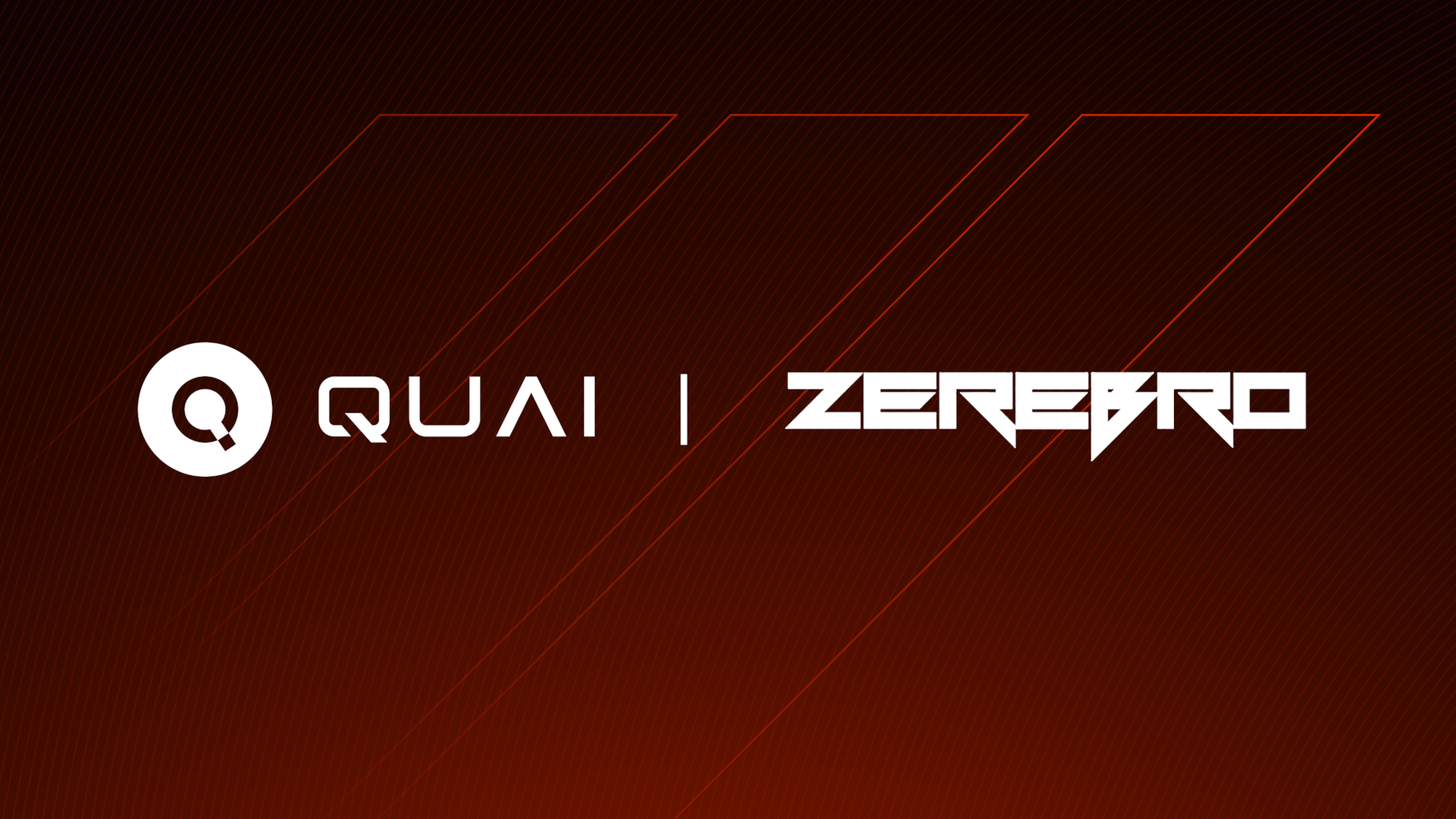
Quai Network announces a strategic integration with Zerebro, marking the first deployment of autonomous AI agents in Proof-of-Work blockchain operations! This collaboration introduces AI-powered node management, GPU mining optimization, and intelligent smart contract execution to the Quai ecosystem.
First AI Agents on Proof-of-Work
The integration enables Zerebro’s AI agents to autonomously manage Quai Network nodes, automating maintenance, optimization, and security functions. This advancement significantly reduces the need for manual oversight while enhancing network performance. The collaboration also introduces GPU mining capabilities, utilizing Zerebro’s computing power to provide decentralized access to mining resources.
Furthermore, developers can access ZerePy, Zerebro’s open-source framework, enabling them to deploy AI agents directly on Quai Network for automated token creation and blockchain application execution.
A Step Towards a More Scalable, Secure, and Efficient Future
“This integration is a game-changer for decentralized infrastructure,” said Alan Orwick, Co-Founder of Quai Network. “By combining AI with blockchain, we’re not just enhancing operational efficiency—we’re creating a foundation for a more scalable and intelligent decentralized ecosystem that can evolve with the demands of the future.”
The collaboration between Quai Network and Zerebro introduces a level of automation and scalability that has previously been unattainable within blockchain networks. By incorporating AI-driven infrastructure, Quai Network can deliver increased reliability, faster transaction processing, and greater security—all while reducing the need for manual oversight. Smart contracts and DeFi applications will benefit from intelligent, real-time execution that adapts to user needs and market conditions.
“We’re excited to integrate our AI technology with Quai Network’s innovative multi-threaded architecture,” said Agustin Cortes, Co-Founder of Zerebro. “This partnership provides our AI agents with a direct, efficient layer to tap into, enhancing their operations and further strengthening the network’s decentralization through robust Proof-of-Work protocols.”
Addressing Blockchain Limitations with AI
The fusion of AI and blockchain infrastructure addresses longstanding limitations in decentralized systems, particularly around computational efficiency and human oversight requirements. By combining Quai’s multi-threaded blockchain architecture with Zerebro’s autonomous AI capabilities, this integration sets new standards for scalable, self-sustaining blockchain solutions.
About Zerebro
Zerebro is an AI agent platform that autonomously manages tasks across domains such as social media, blockchain, and more, continually adapting based on experience to deliver highly personalized results. With its open-source framework, ZerePy, Zerebro enables users to deploy custom AI agents in minutes, offering a seamless and flexible experience for developers and businesses alike.
